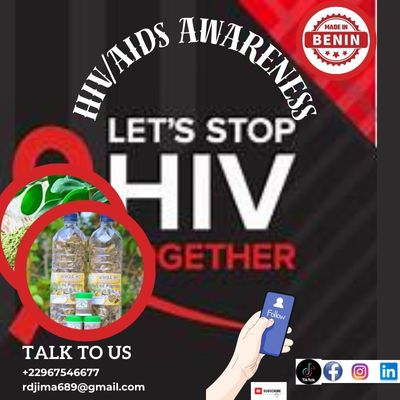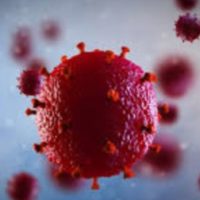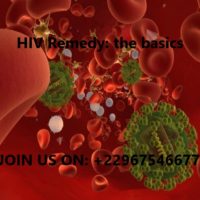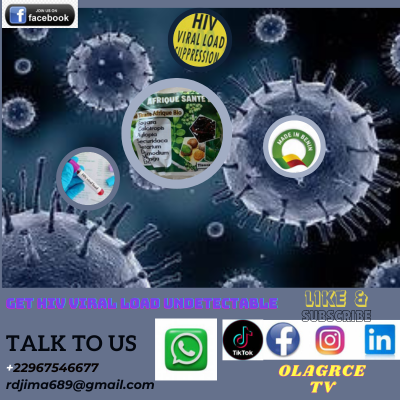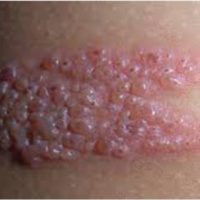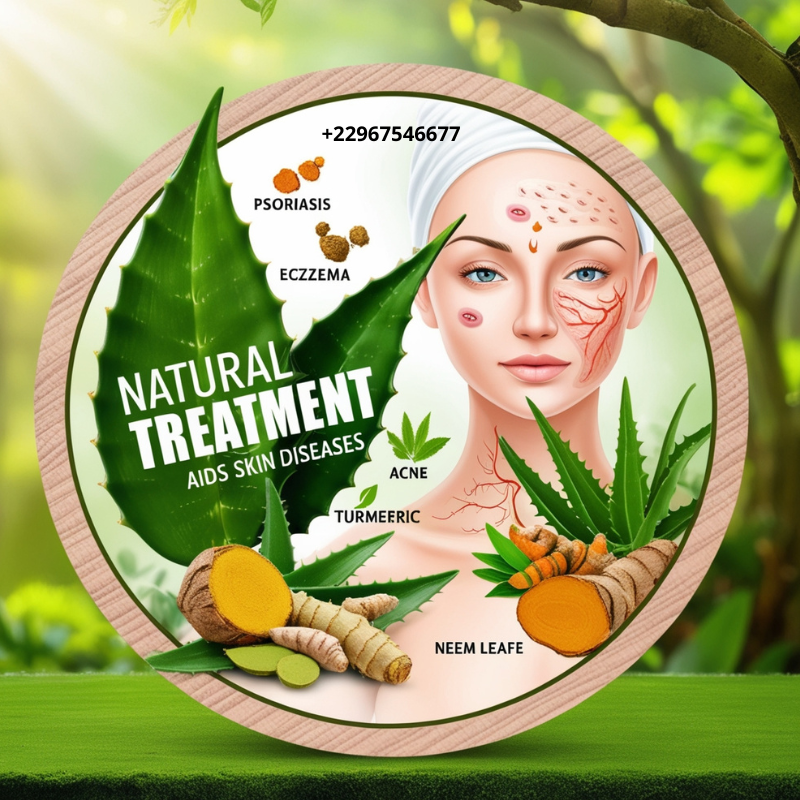Description

Overview
HIV is an infection that weakens the immune system and can progress to AIDS. It spreads through body fluids and can be treated with antiretroviral therapy. WHO defines Advanced HIV Disease as a CD4 cell count of less than 200 cells/mm3 or WHO stage 3 or 4 in adults and adolescents. All children with HIV younger than 5 years of age are considered to have advanced HIV disease.
HIV SYMPTOMS: HIV/AIDS Awareness
Without treatment, people with HIV infection can also develop severe illnesses:
- tuberculosis (TB)
- cryptococcal meningitis
- severe bacterial infections
- cancers such as lymphomas and Kaposi’s sarcoma.
HIV causes other infections to get worse, such as hepatitis C, hepatitis B and mpox.
Click below to order clove oil
Technical Sheet Of Herbal Tea 327: HIV/AIDS Awareness
weight 50g
Compositions Plant extracts
Properties: Immunoreconstituant, antioxidant, anti-inflammatory, analgesic, antiviral, cicatrisant, antiseptic, dietary supplement,
Active ingredients: Saponide, flavonoids, sterols, micronutrients etc
Presentation: Powder in a jar or sachets or capsules
Instructions for use: Read the instructions
Indications, lower immune defences, etc.
Side effects: None
Duration of treatment: One year renewable
Price 50 euros
READ MORE: HIV/AIDS Awareness
Active substances
Fagaricin, Fagaronine, vitamins, minerals, amino acids, anti-inflammatory, etc.
Click below to order clove oil
Therapeutic Effects of HIV/AIDS Awareness
Herbal Tea No. 327 is a natural remedy designed to help achieve an undetectable HIV viral load. This tea works by boosting the immune system and protecting against degenerative diseases. It acts as a natural antiretroviral, providing quick results. Its effectiveness can be assessed by comparing viral load and CD4 count before and after three months of regular consumption. Additionally, Herbal Tea No. 327 aids the body in defending against foreign substances such as bacteria, viruses, and yeast.
Transmission: HIV/AIDS Awareness
HIV can be transmitted through body fluids like blood, breast milk, semen, and vaginal secretions, as well as from mother to child during pregnancy and delivery. However, it’s not transmitted through everyday contact like kissing or sharing objects. Individuals with HIV who are on antiretroviral therapy and have an undetectable viral load do not transmit HIV to their sexual partners. Access to treatment is crucial for improving their health and preventing transmission.
READ ALSO: THE BEST WAY TO MAKE HIV VIRAL LOAD UNDETECTABLE
Risk factors:
Behaviors and conditions that can increase the risk of contracting HIV include:
– Engaging in condomless anal or vaginal sex
– Having another sexually transmitted infection (STI) such as syphilis, herpes, chlamydia, gonorrhoea, and bacterial vaginosis
– Engaging in harmful use of alcohol and drugs in the context of sexual behaviour
– Sharing contaminated needles, syringes, and other injecting equipment and drug solutions when injecting drugs
– Receiving unsafe injections, blood transfusions, and tissue transplantation, and undergoing medical procedures that involve unsterile cutting or piercing
– Experiencing accidental needle stick injuries, including among health workers
Diagnosis: HIV/AIDS Awareness
HIV can be diagnosed using rapid tests for same-day results, but confirmatory testing by a qualified health worker is needed for a full diagnosis. The most widely used tests detect antibodies produced by the person’s immune system, but rapid tests may not detect low levels of antibodies in the early stages of infection. It is crucial to undergo retesting after a recent high-risk exposure or a positive diagnosis to ensure accuracy and rule out any potential errors.
For infants born to HIV-positive mothers, virological testing is necessary as early as birth or at 6 weeks of age, as rapid antibody testing is not sufficient. New technologies allow for same-day results, speeding up treatment and care.
If you need advice write to us here
Prevention: HIV/AIDS Awareness
HIV is a preventable disease. Ways to reduce the risk of HIV infection include:
– Using a male or female condom during sex
– Being tested for HIV and sexually transmitted infections
– Voluntary medical male circumcision
– Utilizing harm reduction services for people who inject and use drugs
Doctors may recommend medicines and medical devices to help prevent HIV, such as:
– Antiretroviral drugs (ARVs), including oral PrEP and long-acting products
– Dapivirine vaginal rings
– Injectable long-acting cabotegravir
ARVs can also be used to prevent mothers from passing HIV to their children. It’s important to note that people taking antiretroviral therapy (ART) and those who have no evidence of the virus in their blood will not pass HIV to their sexual partners. Access to testing and ART is crucial in preventing HIV.
